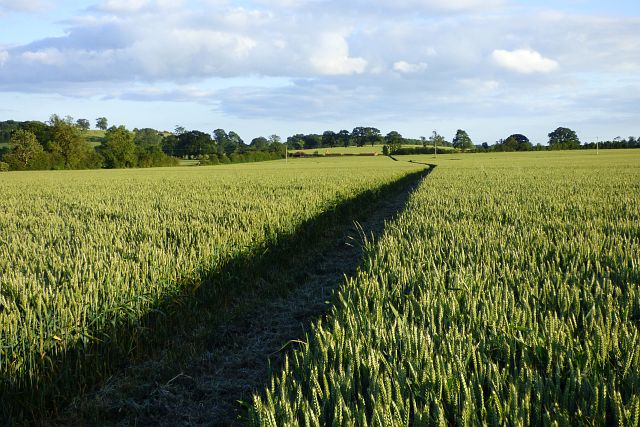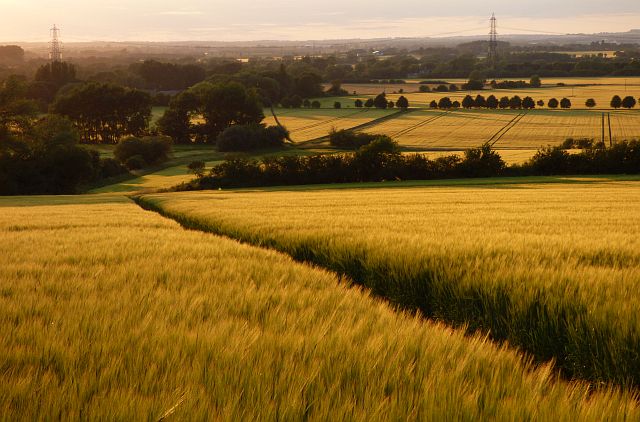Investing in real estate has long been considered a lucrative opportunity for investors. From residential properties to commercial buildings, the options are endless.
However, have you ever considered investing in farmland? Farmland Real Estate Investment Trusts (REITs) offer a unique and promising avenue for investors looking to diversify their portfolio.
In this article, we’ll explore the concept of farmland REITs, their advantages, risks involved, and two top-notch farmland REITs to consider in 2023 – Gladstone Land and Farmland Partners. So let’s delve into the world of farmland REITs and discover how they can potentially benefit your investment strategy.
Understanding Farmland REITs
Farmland REITs pool investor funds to acquire and manage agricultural land. They lease the land to farmers, generating income through rent or share crop proceeds. Investing in farmland REITs offers diversification, liquidity, and contributes to global food production. Consider risks and seek guidance before investing.
Advantages of Investing in Farmland REITs
Investing in farmland REITs offers stability, diversification, and potential returns for investors. By leasing land to farmers, you can enjoy a steady stream of income that provides stability amidst market fluctuations. Additionally, farmland acts as a hedge against inflation and has historically shown resilience to rising prices.
With its low correlation to other asset classes, investing in farmland helps diversify your portfolio and spread risk. Furthermore, the combination of rental income and property appreciation potential can lead to attractive long-term gains.
Overall, investing in farmland REITs offers several advantages for investors seeking stable income, diversification, and potentially attractive returns.
Risks of Investing in Farmland REITs
Investing in farmland REITs comes with risks that should be carefully considered. Here are three key risks to be aware of:
Farmland is vulnerable to adverse weather conditions, pests, diseases, and changes in commodity prices. These factors can impact crop yields and the profitability of the land.
While farmland itself is stable, market conditions can indirectly affect its value. Economic downturns or shifts in global agricultural markets may lower rent payments or decrease property values.
Government policies, land use regulations, and environmental restrictions can influence the operations and profitability of farmland REITs. Staying updated on relevant regulations is essential for informed investment decisions.
By understanding and managing these risks, investors can make more informed choices when considering farmland REIT investments.
Two Farmland REITs to Consider in 2023 (Gladstone Land and Farmland Partners)
If you’re looking to invest in farmland REITs, Gladstone Land and Farmland Partners are two standout options. Gladstone Land (NASDAQ: LAND) acquires farmland across the United States, offering a diversified portfolio with crops like berries, vegetables, nuts, and citrus fruits.
With consistent dividend payments and a focus on sustainable farming practices, they present an attractive choice for agriculture exposure. Farmland Partners (NYSE: FPI) specializes in high-quality crop-producing farms in strong market regions.
Their long-term perspective and agricultural expertise aim to deliver stable returns through income generation and potential appreciation. Explore these top-notch farmland REITs for potential opportunities in 2023.
How Farmland REITs Can Help Diversify Your Portfolio
Including farmland REITs in your investment portfolio can offer valuable diversification benefits, helping to reduce overall risk and potentially enhance long-term gains. Unlike traditional asset classes such as stocks or bonds, farmland investments have shown little correlation, providing a buffer against market volatility.
One significant advantage of investing in farmland is the exposure to tangible assets that produce essential goods – food. By adding farmland REITs to your portfolio, you gain access to an asset class that acts as a hedge against inflation and provides stability over the long term.
Furthermore, historical data indicates that farmland values tend to appreciate over time. With increasing demand for food production and limited availability of arable land, investing in farmland REITs presents an opportunity for potential capital appreciation alongside rental income.
To fully harness these benefits, it is crucial to conduct thorough research and exercise careful consideration when selecting specific farmland REITs. Two notable examples within this asset class are Gladstone Land and Farmland Partners.
By diversifying your investment strategy with farmland REITs like Gladstone Land and Farmland Partners, you open up new opportunities for steady income streams and potential long-term gains. While risks exist, proper due diligence can help mitigate them effectively.
[lyte id=’cJMYlFqIaFs’]




